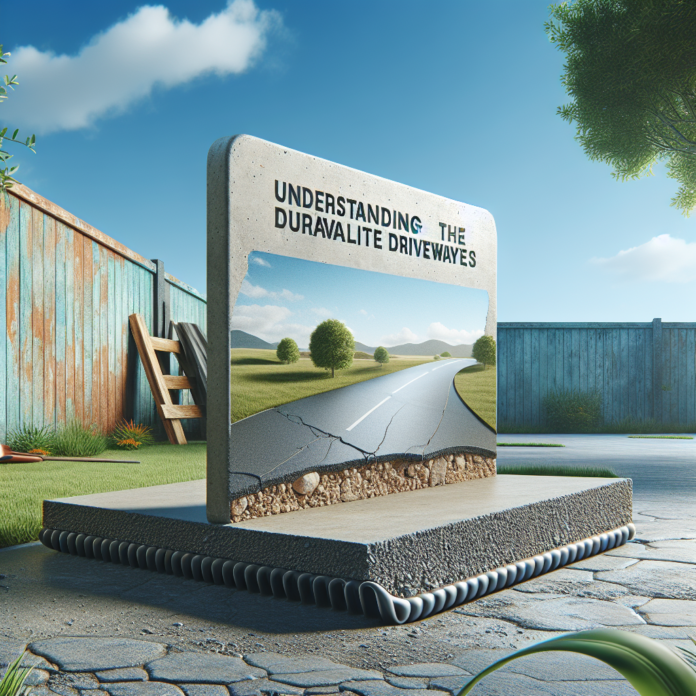One of the most common questions that homeowners ask about concrete driveways is how durable they are. This is a particularly important question because a driveway is regularly subjected to heavy traffic and a range of weather conditions. In this article, we will delve into the durability of concrete driveways and what homeowners can do to enhance this durability.
Understanding Concrete Durability
The durability of concrete relies on several factors, including its composition and maintenance. Concrete, a mixture of cement, water, and aggregate, is renowned for its strength and durability. It boasts a compressive strength that provides resistivity against loads; hence, it is ideal for driveways that need to withstand heavy vehicle weights.
High-quality concrete should not crack or deteriorate quickly. However, exposure to extreme weather conditions and poor maintenance can undermine its longevity. Fortunately, regular maintenance can help mitigate these issues and improve its lifespan.
Factors Affecting Concrete Durability
Various elements can affect the durability of concrete driveways. These factors include:
1. The Concrete Mix
The components of the concrete mixture are critical in determining its durability. The quality of the cement, aggregates and the ratio of water to cement can significantly impact the strength and lifespan of the concrete. For instance, using a lower water-to-cement ratio typically results in stronger and more durable concrete.
2. Installation Process
The correct installation of a concrete driveway is vital to its durability. This process includes proper subgrade preparation, the use of steel reinforcement, and adequate concrete curing—all of which contribute to the integrity and strength of the final product.
3. Weather Conditions
Extreme weather conditions can adversely impact the durability of a concrete driveway. Extended periods of heavy rainfall, frost, and freeze-thaw cycles can cause the concrete to crack or even separate. However, concrete sealers can protect the driveway from these weather-related damages.
4. Regular Maintenance
Regular maintenance enhances the longevity of a concrete driveway. This involves periodic cleaning, the timely repair of cracks, and the application of concrete sealer every few years.
Making a Concrete Driveway More Durable
While existing concrete driveways can last for many years, some steps can be taken to improve their durability further. This includes using a high-quality concrete mix, employing a reputable installer, applying a concrete sealer, and performing regular maintenance.
Conclusion
It’s clear that while concrete driveways are inherently durable, their longevity can be influenced by a variety of factors. Proper installation and regular maintenance practices go a long way in ensuring they last for many years. Understanding these factors can help homeowners make informed decisions when it comes to the installation and care of their concrete driveways.
FAQs
1. How long does a concrete driveway last?
A well-constructed and maintained concrete driveway can last upwards of 30 years.
2. Can extreme weather affect my concrete driveway?
Yes. Freeze-thaw cycles can lead to cracking, while extended periods of heavy rains can cause damages. Use of concrete sealers can help protect your driveway from weather-related damages.
3. How can I enhance the durability of my concrete driveway?
You can enhance the durability by ensuring professional installation, using high-quality concrete mix, timely repair of cracks, and regular application of concrete sealers.
4. How often should I seal my concrete driveway?
It’s best to seal your concrete driveway every 2-3 years, but this can vary depending on the weather conditions and usage.
5. Can heavy vehicles damage my concrete driveway?
Concrete driveways have a high compressive strength and can withstand heavy loads. However, poorly constructed driveways may crack under the weight of heavy vehicles.

